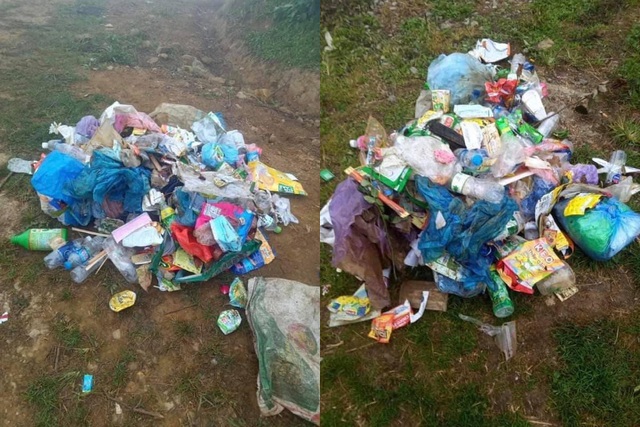In the old Vietnamese concept, a true man must know gambling/drink tea and read Kieu poem”. It can be seen that tea drinking is considered a common custom or even a culture in Vietnam.
Over time, tea drinking should not be treated like drinking other juices, but a typical kind of art in Vietnamese culture, as it gives drinkers the sense of relaxation amid hectic life.
 |
|
Stopping at a roadside tea bar and enjoying a glass of iced tea gives a sense of true refreshment/ Photo: Nhan Minh
|
According to professor Tran Ngoc "Vietnamese people are invited to drink tea not merely for refreshment, but to express a high culture, an expression of intimacy, a desire for harmony, a favor of conversation.
Vietnamese people are invited to drink tea to start a talk of peace, to discuss family and social affairs and love affairs, to feel the taste of earth, sky, plants and all things in the cup of tea.
By origin, many cultural researchers stated that Vietnamese tea drinking custom was adapted from China. According to scholar Vu Bang, Vietnamese tea has very basic differences with Chinese peer in the way of making, drinking and tasting.
There are two main types of tea. Fresh tea are original tea leaves boiled in water, drunk to refresh the physical and mental health. Dried tea is made from carefully selected leaves and buds, with many meticulous processing steps and stages.
Tea has become a popular drink for Vietnamese people in general and Hanoians in particular.
Sipping a cup of tea after the breakfast is proven to dissipate working stresses. Stopping at a roadside tea bar and enjoying a glass of iced tea gives a sense of true refreshment. Tea is also the first thing the host offers to welcome guests.
Hanoians drink tea anywhere anytime they like. But, there are three popular tea-drinking places for them: At home, in the office and a tea house or waterfront tea shops. Almost every family in Hanoi has a tea set. Whenever there is a visit, the polished tea-set shows respect and hospitality of the host to the guests.
Coffee shops opened all over Hanoi streets previously are now facing competition from teahouses. Each tea house has its own service fashion: Japanese teahouses with very formal rituals, Chinese teahouse with desserts and Vietnamese teahouse with simplicity of enjoyment. These in combination have enriched the tea culture of Hanoians.Unlike drinking tea at home or at large tea houses, people in Hanoi also tend to drink tea at roadside tea shop serving either white-collar workers, blue-collar workers, students or the elderly with the same casualness and informality so as for them to fully enjoy their cup of tea.
Hanoi people tend to drink tea in places where it’s most convenient for them to park the motorbike and feel comfortable, for example on the roadside.
In the heat of scorching summer, a glass of iced tea will dispel all fatigues. In the morning of cold winter, a cup of hot tea will make people think more about life. Hanoitimes

Sapa tea hill to be closed due to litter crisis
Oolong tea hill in Sapa Town in the northern province of Lao Cai will be shut from tomorrow, December 3 after being harmed by visitors.
